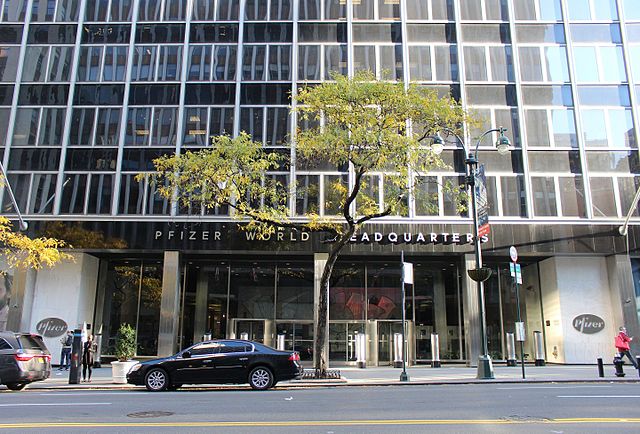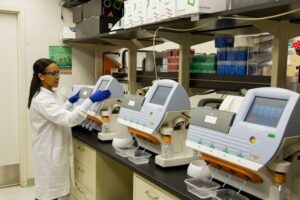Pfizer and BioNTech are seeking emergency use authorisation (EUA) status from the US Food and Drug Administration (FDA) for their Covid-19 vaccine candidate.

Pfizer world headquarters in Manhattan, New York. (Credit: Coolcaesar)
Subscribe to our email newsletter
The companies have submitted a request to the FDA to secure FDA EUA status for BNT162b2 mRNA vaccine candidate against SARS-CoV-2.
The Covid-19 vaccine is expected to be available for high-risk populations in the US by mid-December 2020.
BioNTech CEO and co-founder Ugur Sahin said: “Filing for emergency use authorisation in the US is a critical step in making our vaccine candidate available to the global population as quickly as possible.”
Pfizer and BioNTech’s submission is based on a vaccine efficacy rate of 95% showed in phase 3 clinical study in participants without prior SARS-CoV-2 infection (first primary objective), as well as in participants with and without prior SARS-CoV-2 infection (second primary objective). Each case has been measured from seven days after the second use.
The phase 3 clinical trial recruited 43,661 participants, of which 41,135 have secured a second dose of the vaccine candidate as of 13 November.
The firms have already started rolling submissions with various regulatory agencies across the world, including the EMA and the Medicines & Healthcare Products Regulatory Agency (MHRA) in the UK. They are also planning to submit applications to other regulatory agencies across the world in the near future.
Pfizer and BioNTech’s combined manufacturing network has the capacity to distribute up to 50 million vaccine doses across the globe in this year, as well as up to 1.3 billion doses by the end of 2021.
Pfizer chairman and CEO Dr Albert Bourla said: “Our work to deliver a safe and effective vaccine has never been more urgent, as we continue to see an alarming rise in the number of cases of Covid-19 globally.
“Filing in the US represents a critical milestone in our journey to deliver a COVID-19 vaccine to the world and we now have a more complete picture of both the efficacy and safety profile of our vaccine, giving us confidence in its potential.”
 Advertise With UsAdvertise on our extensive network of industry websites and newsletters.
Advertise With UsAdvertise on our extensive network of industry websites and newsletters.
 Get the PBR newsletterSign up to our free email to get all the latest PBR
news.
Get the PBR newsletterSign up to our free email to get all the latest PBR
news.

